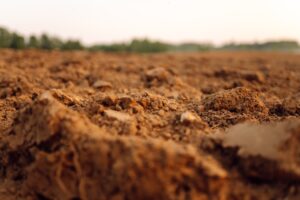The Hidden Cost of Rising Temperatures: Your Skin, Cells, and Lifespan
As global temperatures soar, scientists are uncovering a startling truth: extreme heat may age your body as rapidly as smoking or heavy drinking. In 2025, parts of the U.S., Europe, and South Asia are experiencing record-breaking heatwaves — not just in terms of temperature, but in how frequently and persistently they strike. And while the visible impacts on the environment are well known, the silent toll on the human body is just beginning to be understood.
Why Heat Accelerates Aging
Chronic Heat Exposure Triggers Biological Stress
Extreme heat doesn’t just make you sweat — it activates heat shock proteins and stress response pathways in the body. Prolonged exposure can increase inflammatory markers, speed up cellular aging, and disrupt the body’s ability to repair itself. In essence, heat acts like a biological stressor that wears down your resilience over time.
Comparable to Smoking or Alcohol?
Recent research has shown that chronic exposure to extreme heat can:
- Increase oxidative stress, similar to the damage caused by smoking
- Disrupt collagen production, leading to earlier skin aging
- Interfere with sleep and circadian rhythms, affecting hormonal balance
- Exacerbate dehydration and cardiovascular strain
One 2024 study found that individuals in consistently hot environments showed biological markers of aging that mirrored those of long-term smokers or heavy drinkers, even if they led otherwise healthy lives.
The Climate-Aging Connection in 2025
Urban Heat Islands Are Making It Worse
In many cities around the world, concrete and asphalt surfaces trap heat, raising temperatures in urban areas by up to 7°F (4°C) higher than surrounding regions. In 2025:
- Phoenix hit 55 consecutive days above 100°F (38°C)
- Delhi experienced a record wet-bulb temperature spike, where heat and humidity together became dangerous to human life
- Los Angeles saw a 15% increase in ER visits for heat-related illness compared to 2023
Vulnerable Populations Are at Higher Risk
People without access to cooling — particularly seniors, low-income households, and outdoor workers — are facing the brunt of heat-related aging. This is also a social justice issue: the people least responsible for climate change are often the most impacted.
Natural Ways to Protect Your Body From Heat-Related Aging
Use Nature to Cool Your Space
- Add indoor plants that cool and purify the air (like peace lilies, ferns, and snake plants)
- Use natural curtains made of linen or bamboo to reduce sunlight penetration
- Cross-ventilate your home by opening windows strategically when temperatures drop at night
Upgrade Your Wardrobe
- Wear loose, breathable clothing made of organic cotton or hemp
- Avoid synthetic materials that trap heat and increase sweat-related skin irritation
Focus on Internal Cooling
- Eat hydrating foods like cucumbers, watermelon, and leafy greens
- Sip herbal teas like hibiscus or peppermint, which help regulate internal temperature
- Avoid excess caffeine or alcohol, which worsen dehydration
Protect Your Skin, Sustainably
- Use natural mineral sunscreens with zinc oxide instead of chemical filters
- Apply antioxidant-rich serums like Vitamin C to combat heat-induced skin damage
- Rehydrate your skin with aloe vera, cucumber masks, or rosewater sprays
The Environmental Angle: Why Cooling Shouldn’t Come at the Planet’s Expense
While air conditioners offer temporary relief, they’re also a leading contributor to greenhouse gas emissions. In 2025, cooling accounts for nearly 10% of global electricity use, much of it still powered by fossil fuels.
Sustainable Cooling Solutions
- White roofs and reflective paint can reduce indoor temps by 2–3°C
- Solar-powered fans and swamp coolers offer low-emission alternatives
- Community tree-planting projects help cool entire neighborhoods while improving air quality
How to Advocate for Change
If you want to address the root of the problem, consider:
- Supporting policies that increase urban canopy coverage
- Donating to or volunteering with organizations working on climate justice
- Encouraging your local government to invest in sustainable infrastructure
The Bigger Picture: Aging Is a Climate Issue Now
Climate change isn’t just about melting glaciers or endangered species. It’s about how your body ages, how long you stay healthy, and how well you live. Protecting yourself from extreme heat isn’t just a comfort issue — it’s a longevity strategy.
The good news? Many of the most effective heat-protection strategies are also good for the planet. Cooling yourself naturally, greening your space, and advocating for climate solutions align personal wellness with global well-being.









Reader Interactions